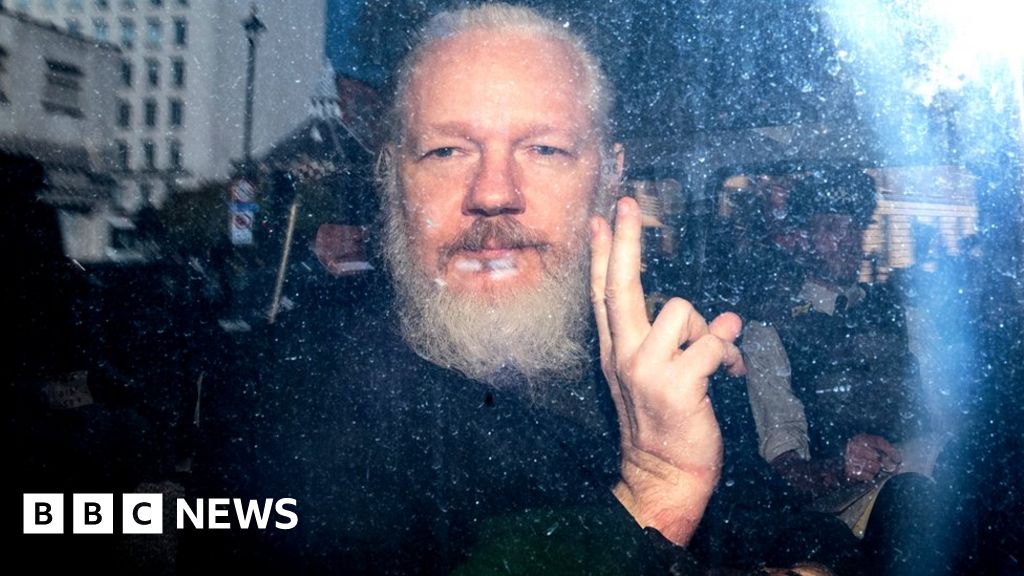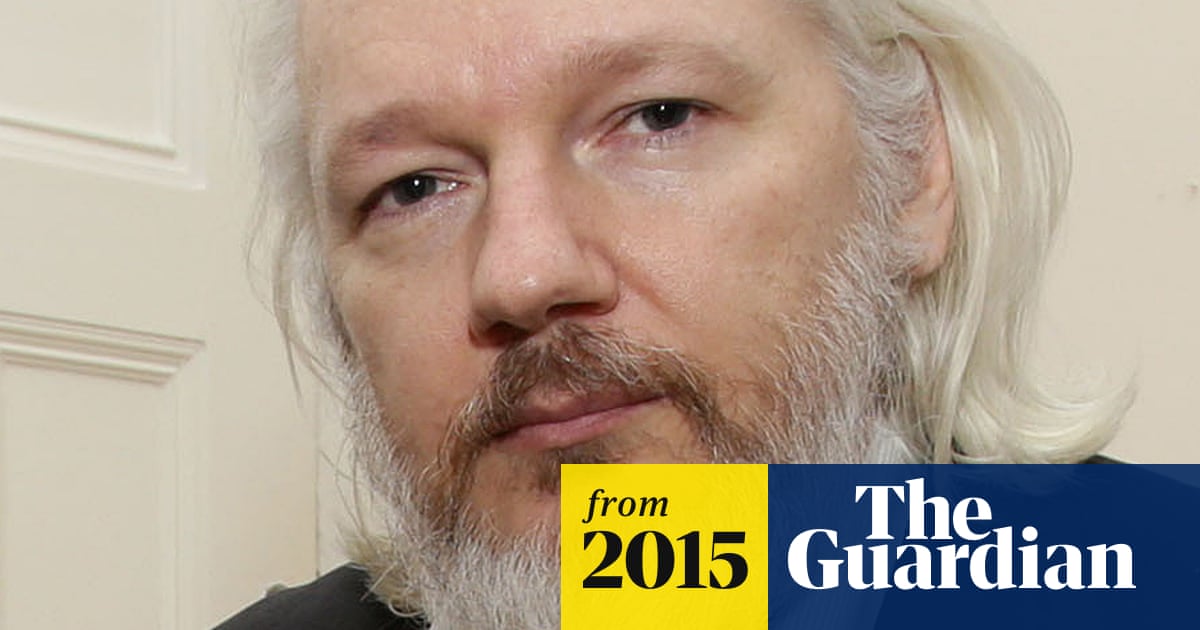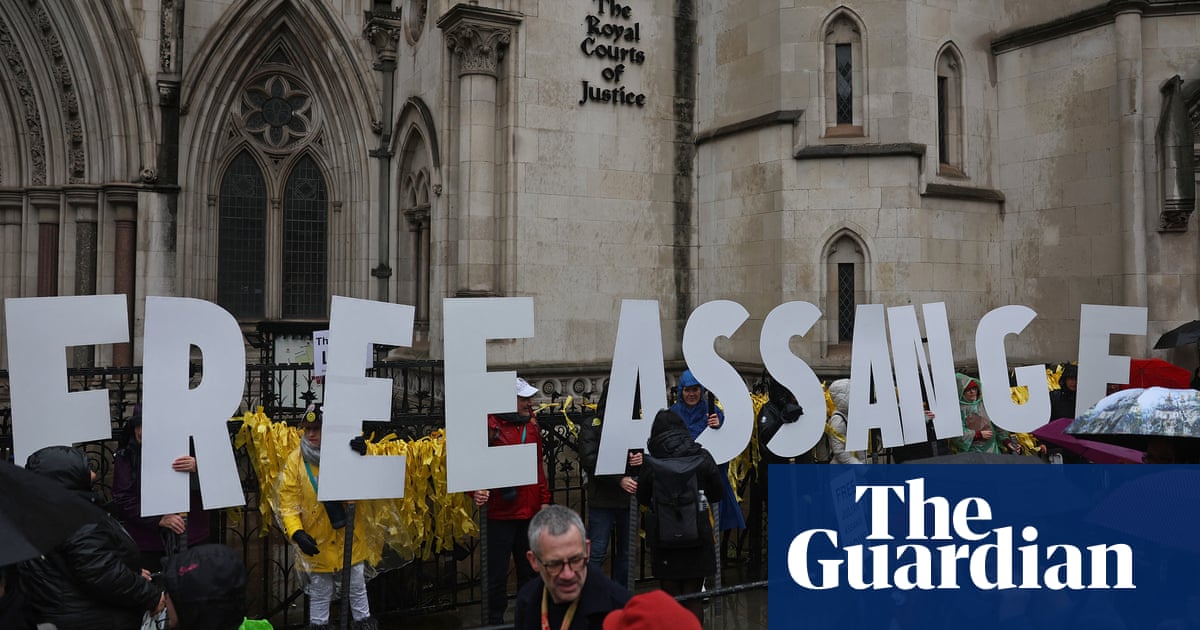
Last week, as Julian Assange finally left his 2x3 prison cell where he stayed in isolation for the past half a decade, this week's TypeRight goes back to see what the legacy the entire episode leaves behind on the Internet.
In 2007 July, two journalists from Reuters were among several other Iraqi civilians who were gunned down by a US Army helicopter. Following this, the helicopter also proceeded to send a barrage of missiles into a building 'suspected' of housing insurgents. It was three years later, in 2010, that a website called WikiLeaks published the leaked footage of the attack, in a video they titled "Collateral Damage"

In an interview with Al Jazeera, the founder of the website WikiLeaks, Julian Assange, explains why he has named the video the way he did:
"And you can see that they also deliberately target Saaed, a wounded man there on the ground, despite their earlier belief that they didn't have the rules of engagement—that the rules of engagement did not permit them to kill Saeed when he was wounded. When he is rescued, suddenly that belief changed. You can see in this particular image he is lying on the ground and the people in the van have been separated, but they still deliberately target him. This is why we called it Collateral Murder. In the first example maybe it's collateral exaggeration or incompetence when they strafe the initial gathering, this is recklessness bordering on murder, but you couldn't say for sure that was murder. But this particular event—this is clearly murder"
Julian Assange goes on to explain the concept behind Wikileaks - "The promise we make to our sources is that not only will we defend them through every means that we have available – technologically, legally and politically – but we will try and get the maximum possible political impact for the material that they give to us." Along with the more famous Iraq War Files, Wikileaks, the non-profit archiver and media organisation, basically publishes (dumps) classified documents which is sourced anonymously. The government(s) claim that these classfied documents are military and government secrets, and what Wikileaks does is espionage crime, not journalism.
Of course, the political impact was as maximum as things get.
The hunt for Assange begins right after the 2010 Iraq leak made headlines. Only a few months later, in August, Swedish prosecutors issue an arrest warrant for Assange on two separate sexual assault allegations. Assange denies charges, says it is "without basis," and an attempt to extradite him to a court in the US which can take action against him as revenge for exposing the United States' moral bankrupcy. He is arrested in London, but is granted asylum by Ecuador, to whose embassy he shifts his residence to.
During the seven years he made the embassy his home and the balcony his press conference spot, one UN panel ruled that Assange has been "arbitrarily detained" by UK and Swedish authorities and calls for his freedom, and by 2017, Sweden's director of public prosecutions announces that the sexual assault investigations into Assange are being dropped.
While projecting the extradition as necessary to pursue investigation on the assault case, it is revealed that the US justice department has secretly filed charges against Assange - on counts of espionage.
The embassy immunity lasted until 2019, when the host country gave in, and London Met Police entered to arrest him in April. He is taken to Belmarsh prison, where additional charges are added, and Assange begins filing appeals against his extradition.
Finally, last week, after a lot of back and forths in court, he formally pleads guilty to one count of breaching the Espionage Act and in return is allowed to walk free and return to his native Australia.
Fourteen years later, the ordeal for Assange seems to have come to an end for now. But the question is of what legacy he has left behind for the radical possibbilities of the internet.
The US continually accused WikiLeaks of endangering national security - “without regard to the security and the sanctity of the lives your actions endanger”. However, in the one and a half decade during which the publisher was actively dumping leaks, there are no connected cases of deaths directly attributable to the release of the cables. What happened was more of an image issue, a PR problem, and an embarassment for the American empire, caught lying and flouting international norms.
The published documents have DABs of 765 of the then 779 detainees at Guantanamo. A cursory examination of these DABs reveals that the majority of detainees were tortured during their detention period. They were forced to confess their involvement in crimes, or indict other inmates, despite the fact that none of these confessions are legally admissible in the courts. Since most of the inmates were from countries like Afghanistan or Pakistan, and had been sent to Guantanamo after spending time in different prisons across the world, it was almost impossible for their relatives or state governments to protect them in any way.
The DABs reveal that barring a tiny minority, most of the detainees were found to be “innocents” or “involved in minor crimes.” Nonetheless, they were subjected to months of ‘interrogation’ which included methods such as waterboarding, sleep deprivation and prolonged exposure to harsh weather conditions and high decibel sounds – all of which is categorized as torture. In some cases, confessions of mentally unstable inmates were deliberately used to implicate other inmates.
A large number of detainees were minors or were mentally unstable. There was an expose on how a 14-year-old boy and an 89-year-old man were transported to Guantanamo prison merely on the suspicion of being involved with the Taliban. Other examples include the detention of a taxi driver from Pakistan because officials thought he may know the terrain better and help in the investigation. A mullah was kept in detention for years without any formal links with the Taliban. There was also the case of an Al-Jazeera journalist detained for the purposes of extracting information about his sources. (Source)
If one looks at news reports on WikiLeaks between 2016-2020, one sees it had lost the popularity or trust it earlier had. This is often traced back to alleged collusions with Putin's regime to undermine US elections. Emails exposed the Democratic National Committee's (DNC) apparent favoritism of Hillary Clinton in the 2016 presidential contest, despite the DNC's declared impartiality. Five senior DNC officials resigned as a result of the revelations. Clinton said that Assange and WikiLeaks were working together with Russia to help her lose to Donald Trump. More than this, the email dumps prompted a new wave of neo-conservative conspiracy theorists to salvage the email-dump and quote portions out of context which apparently lent credibility to their infamous PIZZAGATE.
But WikiLeaks’ second, Russia-aligned act was even more successful than its first. It fueled countless stories about Democratic Party infighting and sneakiness, becoming a critical link between Russian intelligence operatives who would later be indicted and an eagerly participatory U.S. public and media.
It saved then-candidate Donald Trump from a withering news cycle devoted to his taped remarks on sexually assaulting women by publishing thousands of emails from the hacked account of Clinton adviser John Podesta. Pizzagate conspiracy promoters pored over those emails and found imaginary evidence of sex crimes against children, spreading the precursor to the QAnon movement. (source)
The connections one can draw between leaked emails and possibilities for conspiracy theorists are not the strongest. Could the whistleblower have worked at the behest of the Russian government? Could Russia have tried to meddle in the US elections? Julian Assange is told to have advised NSA whistleblower Edward Snowden, who leaked to the world how the US NSA was spying on almost everyone inside and outside of their jurisdiction, to stay in Russia where he would be 'safer'.
The US has a history of directly and indirectly employing its several agencies to enact regime changes, pursue coups, assassinations, and torture to shift international policies in their favour.
From a conversation, Assange describes WikiLeaks thus: "WikiLeaks described itself as the first intelligence agency of the people. Better principled and less parochial than any government intelligence agency, it is able to be more accurate and relevant. It has no commercial or national interests at heart; its only interest is the revelation of the truth. Unlike the covert activities of state intelligence agencies, WikiLeaks relies on the power of overt fact to enable and empower citizens to bring feared and corrupted governments, and corporations to justice."
It opened doors to several such possibilities, perhaps before the hyped-era of post-truth, and during the initial acceleration stages of the internet. WikiLeaks, Assange, Snowden, Chelsea Manning, among other whistleblowers and journalists showed that it is possible to stand up against the new empire, against multiple mechanisms of surveillance and control, and possibly use information as a tool for change. And we owe them for that.
Digital Empowerment Foundation and Digikargha in collaboration with Creative Dignity announce an open call for application for Digital Artisans of India award. This award is to recognise artisans and organisations of India who have used digital tools and digital media to break the traditional barriers and achieved higher excellence in presenting art, making Indian artistry entrepreneurial and profitable, and in making Indian art and artisans reach national and global reach.
Apply here

As we wound up our 2023-24 Digital Swaraj Fellowship, applications are open for next year! Apply here.

See you soon!






























 might be?](https://sk0.blr1.cdn.digitaloceanspaces.com/sites/1394/posts/714526/dbc8de4c-5c50-411f-aba0-55cfb74a692d.jpeg)

Write a comment ...